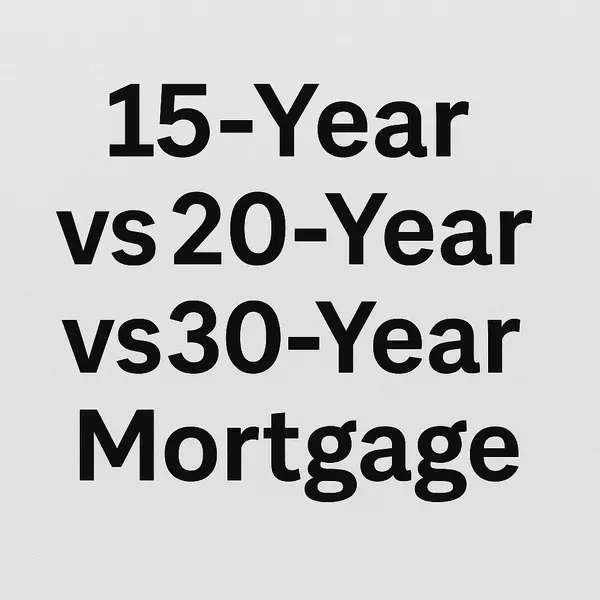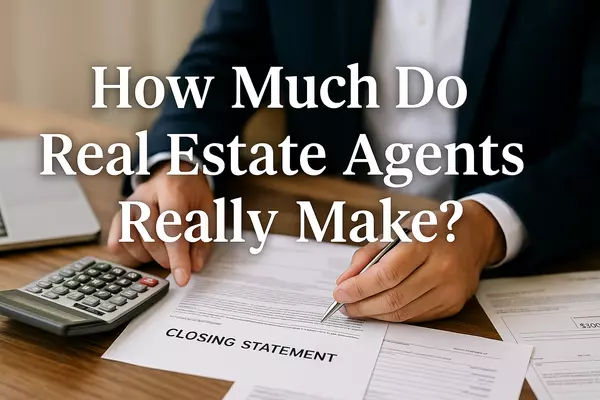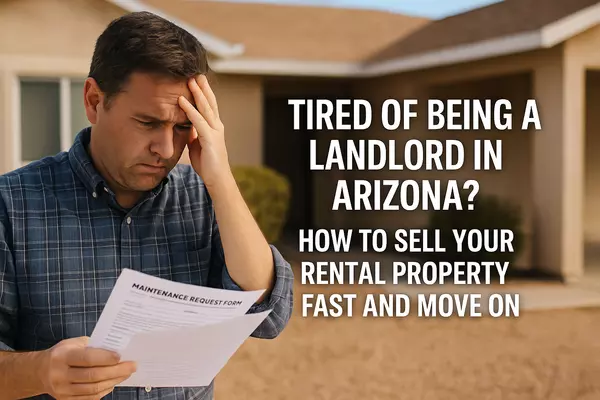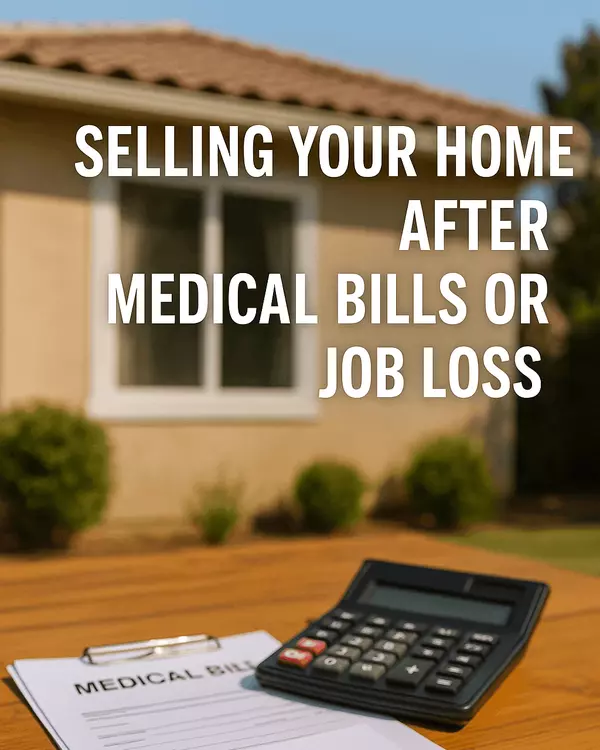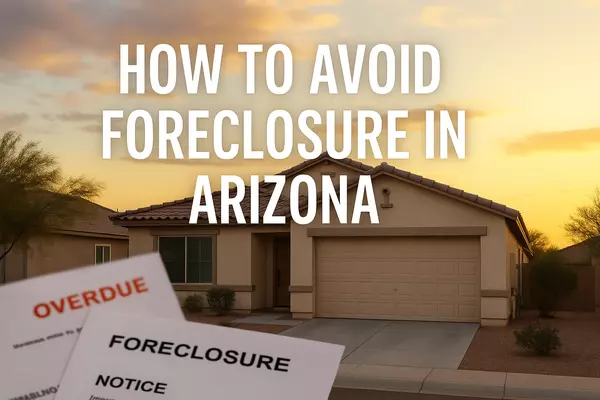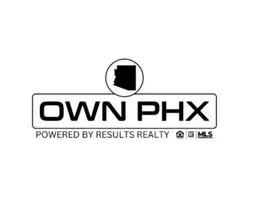How Much Do Real Estate Agents Really Make? (And Where Does All That Commission Go?)
If you’ve ever seen a closing statement and thought, “Dang, the real estate agent made HOW MUCH on this one deal?” you’re not alone.
On paper, it can look like agents are pulling in huge checks for “just putting a sign in the yard” or “opening a few doors.” The truth is a lot more complicated—and a lot less glamorous—than most people realize.
In this post, I’ll break down how much real estate agents actually make, how commission is split, and what’s left after expenses so you can understand where your money is really going.
What Most People Think vs. How It Actually Works
The common belief:
“The agent gets 5–6% of the sale price. Must be nice.”
Reality check:
-
Most agents are 100% commission only (no salary, no benefits).
-
That commission is split multiple times before it ever hits their bank account.
-
From what’s left, they still have to pay all their business expenses and taxes.
So yes, a commission check can look big… but it doesn’t equal pure profit.
A Simple Commission Example
Let’s use a clean, made-up example:
-
Home sells for $500,000
-
Total commission agreed in the listing: 6%
-
That’s $30,000 in total commission
Here’s what usually happens:
-
The seller agrees to that 6% in the listing agreement.
-
At closing, that 6% goes to the listing brokerage.
-
The listing brokerage typically shares part of that with the buyer’s brokerage.
-
Example: 3% to the listing side, 3% to the buyer side
-
-
Each brokerage then splits its portion with the individual agent according to their contract.
So if you’re the buyer’s agent in this example:
-
Buyer’s side commission: 3% of $500,000 = $15,000
-
Your brokerage split (for example): 70% to you / 30% to the brokerage
-
$15,000 × 70% = $10,500 gross to you as the agent
Looks like a nice payday, right?
Now let’s look at what gets peeled off of that $10,500.
What Comes Out of an Agent’s Commission
Real estate agents are usually independent contractors, not employees. That means they’re running a small business, and almost everything comes out of that gross commission:
-
Brokerage fees / desk fees
-
MLS and association dues
-
Supra/lockbox fees and signs
-
Professional photography and video
-
Staging consults or light staging
-
Marketing & advertising (flyers, open house materials, mailers, paid ads, online marketing)
-
CRM and software tools
-
Vehicle costs (fuel, maintenance, insurance, car payment)
-
Self-employment taxes
-
Health insurance & retirement (no employer benefits)
-
Continuing education, coaching, conferences
By the time all of that is paid, that $10,500 might be closer to half—or even less—as actual income.
It’s Not Just How Much, It’s How Often
Another huge piece people forget:
Agents don’t get paid regularly.
There is no every-two-weeks paycheck. It’s more like:
-
Nothing for a month or two
-
Then a couple of closings
-
Then a dry spell
-
Then a cluster of deals
That $10,500 check from one sale often has to:
-
Catch up on past expenses
-
Fund new marketing for future clients
-
Cover months with no closings
So when you hear a number like “That agent made $100,000 this year,” that might be the top-line gross, not what they personally live on after expenses and taxes.
So… How Much Do Real Estate Agents Actually Make in a Year?
It really depends on:
-
How many homes they help clients buy or sell
-
The price points of those homes
-
Their brokerage split
-
Their market and competition
-
How serious they are about it (part-time hobby vs full-time pro)
Generally speaking:
-
Some agents make very little because they close only a handful of deals or treat it as a side gig.
-
Solid, full-time agents often land in the same ballpark as other licensed professionals once you account for risk and expenses.
-
Top-producing agents and teams can earn well into six figures, but they’re usually working long hours, carrying big overhead, and managing a lot of complexity behind the scenes.
Why This Matters to You as a Consumer
You might be wondering, “Okay, cool, but why should I care what an agent makes?”
Because understanding how we’re paid helps you understand:
-
Why experience matters – Someone who treats this like a real business has the systems, marketing, negotiation skills, and support to protect you.
-
Why “cheapest” isn’t always best – You’re usually not just paying for time; you’re paying for skill, strategy, and risk management.
-
Why transparency matters – You should know exactly how your agent gets paid and what you’re getting in return.
When you hire a good agent, you’re not paying them for the few hours you see—you’re paying for:
-
The years they’ve spent learning the contracts and the pitfalls
-
The relationships they’ve built with lenders, inspectors, and vendors
-
The marketing they invest in so your home doesn’t sit stale
-
The negotiation experience that can literally put money back in your pocket
My Promise as Your Agent
As an agent, I never want commission to feel like a mystery or a taboo topic. If you’re thinking about buying or selling, we can sit down and go over:
-
What my fee structure looks like
-
How the commission on your sale or purchase would likely be set up
-
What I’m going to do to earn every penny of it
Thinking About Buying or Selling?
If you’re curious about:
-
What an agent would make on your sale
-
How that would affect your bottom line
-
Or whether hiring a Realtor makes financial sense in your situation
I’m happy to break it all down for you with zero pressure.
👉 Call, text, or email me and I’ll walk you through your numbers in plain English.
Categories
- All Blogs (111)
- Education & Real Estate Trends (6)
- Future Growth & Community Planning (1)
- Lifestyle & Local Attractions (1)
- Local Lifestyle & Community Development (1)
- Real Estate Market Insights & Lifestyle Trends (4)
- 2025 Homebuyer Challenges & Market Trends (1)
- Affordable Arizona Living (1)
- Affordable Living & Neighborhood Guides (1)
- agritopia (4)
- Calculators (1)
- Chandler (3)
- Chandler events (1)
- City Comparisons & East Valley Living (2)
- City Comparisons & Relocation Choices (2)
- Community Comparisons & Relocation Advice (2)
- Community Developments & Local Real Estate Trends (1)
- Community Events & Real Estate Insights (2)
- Community Stories & Newcomer Experiences (1)
- Community Trends & Sustainable Living (1)
- Community Trends & Urban Living (1)
- Cooley Station (4)
- Cost of Homeownership & Local Comparisons (1)
- Cost of Living & Financial Insights (1)
- Development & Infrastructure Impact on Real Estate (4)
- Development and Lifestyle (1)
- Economic Impact & Local Trends (1)
- Family Activities & Outdoor Recreation (1)
- FAQ Q&A (2)
- First-Time Homebuyer Guides & Neighborhood Spotlights (1)
- First-Time Homebuyers (1)
- get my cash offer (2)
- Gilbert (3)
- Gilbert Events (1)
- Green Living & New Home Trends (1)
- Home Selling Tips & Staging Advice (1)
- Homebuyer Decision Guides & Market Insights (1)
- Homebuyer Education & Community Living (1)
- Homebuyer Readiness & Offer Strategies (1)
- Homebuyer Tips & Local Guides (1)
- Homebuyer Trends & Lifestyle Choices (1)
- Homeowner Decision Guides & Financial Planning (1)
- Interior Design & Smart Home Trends (1)
- Local Business & Dining Scene (1)
- Local Business & Real Estate Trends (1)
- Local Business Openings & Community Development (1)
- Local Business Openings & Community Impact (1)
- Local Dining & Coffee Culture (1)
- Luxury Real Estate & Market Impact (1)
- Luxury Real Estate & Neighborhood Spotlights (1)
- Market Insights (1)
- Market Trends & Financial Insights (1)
- Market Trends & Home Values (1)
- Master-Planned Communities & Relocation Guides (2)
- mesa Events (1)
- morrison ranch (3)
- Neighborhood Guides & Family Living (1)
- Neighborhood Guides & Professional Relocation (1)
- Neighborhood Guides & Relocation Tips (1)
- Neighborhood Spotlights (1)
- Neighborhood Spotlights & Homebuyer Value (1)
- Neighborhood Spotlights & Luxury Real Estate (1)
- Neighborhood Spotlights. (1)
- New Construction & Community Spotlights (1)
- New Construction & Homebuyer Incentives (2)
- New Home Trends & Design Inspiration (1)
- New Resident Guide & Local Living (1)
- Outdoor Living & Landscape Design (1)
- Outdoor Living & Relocation Appeal (1)
- power Ranch (3)
- Queen Creek (2)
- Queen Creek Events (1)
- Real Estate Investment Tips (1)
- Relocation & Moving Tips (1)
- Relocation Guides & Community Insights (1)
- Relocation Guides & Community Profiles (1)
- Relocation Hotspots & Community Benefits (1)
- Relocation Pros & Cons (1)
- Relocation Trends & Community Spotlights (2)
- Remote Work & Lifestyle Trends (1)
- san tan valley (1)
- San Tan Valley Event (1)
- Schools & Community Impact on Real Estate (1)
- sell my home (1)
- Sell my house fast (6)
- seville (2)
- Suburban Growth & Relocation Guides (1)
- things to do in the east valley (1)
- Whats my home worth (1)
Recent Posts

